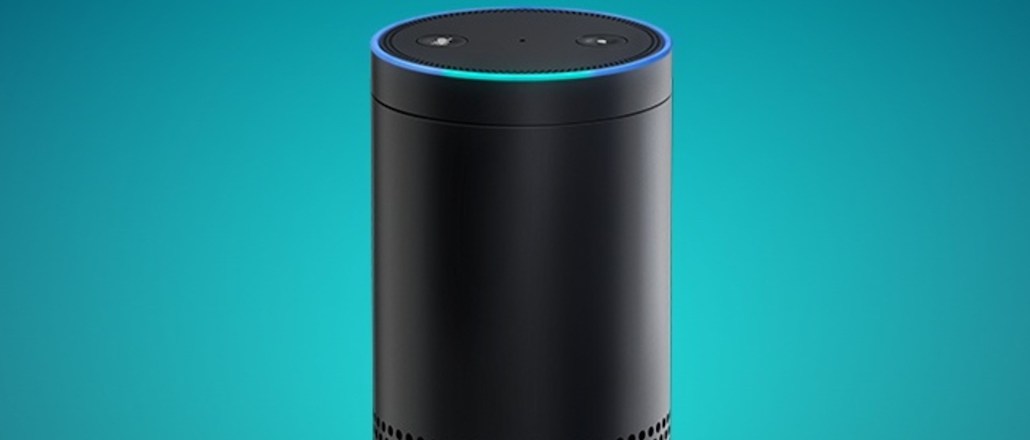Secure your place at the Digiday Publishing Summit in Vail, March 23-25
The state of voice-activated platforms in 4 charts

Voice is hot right now. In 2017, voice-platform analytics company VoiceLabs predicts that 24.5 million devices, like Amazon’s Echo or Google Home, will be shipped globally, for a total of about 33 million. Brands like Patrón and Dominos have jumped on the platform, and publishers are also trying to figure out the space.
Alexa has now been available in the U.K. and Germany since September. Two months later, Google Home, Google’s smart speaker powered by voice-activated Google Assistant, launched in the U.S., although there’s no release date for the U.K.
Here’s a breakdown of the hype and what’s in store for voice-activated platforms in 2017.
Brands like the emotional connection.
There was a lot of buzz around voice at CES, where voice assistance was integrated into everything from fridges to TVs to cars. According to social analytics company Crimson Hexagon, Siri beat Amazon in global Twitter mentions during the course of the event, with Amazon in a close second (two-thirds of Amazon’s mentions were for Echo, one third on Alexa).
“Alexa was everywhere at CES,” said Rafe Blandford, mobile strategist at DigitasLBi. “People have the emotional connection with Alexa they don’t usually get with consumer technology.” Perhaps that’s why some 250,000 people have literally proposed to the voice-activated assistant. “That’s exciting for brands who typically don’t get to play in that space.”
Source: Crimson Hexagon, January
One in four use voice-search on mobile.
Twenty-seven percent of internet users globally have used voice search on their phone in the last month — a figure that would be higher if not for the fact that poor experiences with technology in the past put people off, said Felim McGrath, trends manager at Global Web Index.
Source: Global Web Index, January
Discovery is problematic.
As smart speakers, the most popular use of the devices is to play music and audio books, followed by controlling elements of a connected home, according to a survey by VoiceLabs of Americans (respondents could chose more than one answer).
Source: VoiceLabs, January
Many of these popular “skills” or actions come pre-loaded on the devices. Others created by developers or brands need to be installed, so getting users to discover them is a challenge. Alexa has 7,000 skills (like apps for the platform), grown from 1,000 in June. Google hasn’t announced how many it has, but estimates suggest a few hundred.
One way for an Alexa skill to be discovered is if Amazon promotes it on Alexa’s online store or app or through Facebook ads, according to CEO and co-founder of VoiceLabs, Adam Marchick. VoiceLabs found that during one promotional campaign cycle, the promoted skill had between 500 and 250,000 new subscribers, an increase of 200 percent. Google had a lower base, and the number of new users during a cycle for a promoted Google Action (Google’s version of skills) was between 1,600 and and 3,100, an increase of 290 percent.
Platforms haven’t cracked monetization yet.
Juniper Research forecasts that $12 billion of annual ad spend will be made through voice assistant platforms by 2021. That’s up over 3,000 percent on the estimated spend for 2016, with North America accounting for nearly half of this.
Source: Juniper Research, September 2016.
Yet there’s no clear route to monetization beyond subscriptions, sponsored content around media, like advertisers do with podcasts, and brand integrations.
But advertising directed at the user won’t necessarily be a good user experience.
“Personal assistants will be making decisions on your behalf for commodity items, where you don’t have brand preference, like booking a flight or ordering a taxi,” said Blandford. And while the multiple ad formats found on a Google search page won’t exist, Google recognizes that 20 percent of search queries are through voice.
More in Media

How creator talent agencies are evolving into multi-platform operators
The legacy agency model is being re-built from the ground up to better serve the maturing creator economy – here’s what that looks like.

Why more brands are rethinking influencer marketing with gamified micro-creator programs
Brands like Urban Outfitters and American Eagle are embracing a new, micro-creator-focused approach to influencer marketing. Why now?

WTF is pay per ‘demonstrated’ value in AI content licensing?
Publishers and tech companies are developing a “pay by demonstrated value” model in AI content licensing that ties compensation to usage.








